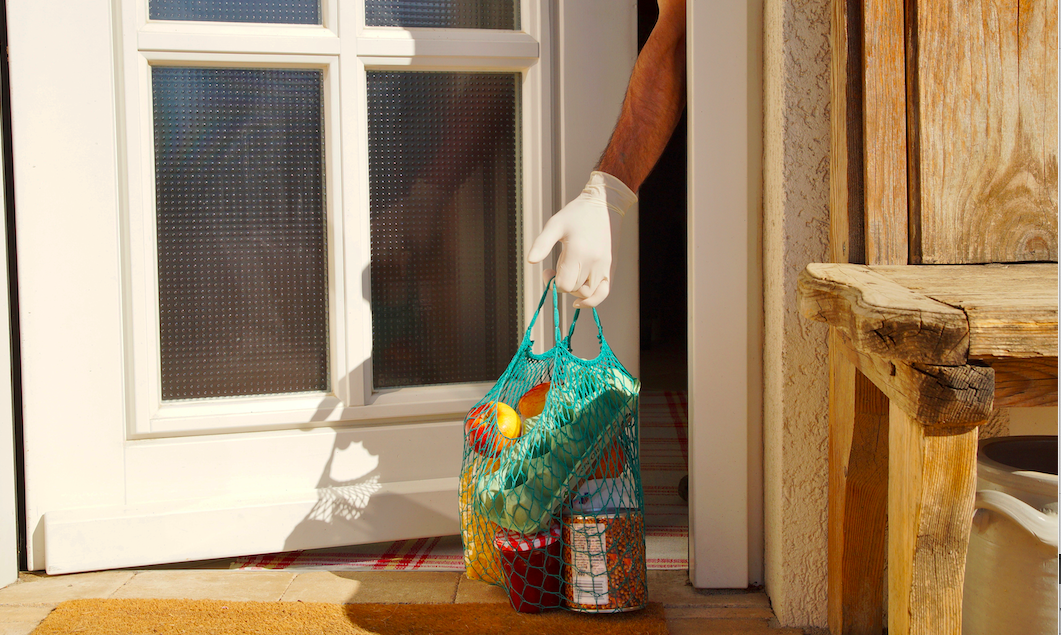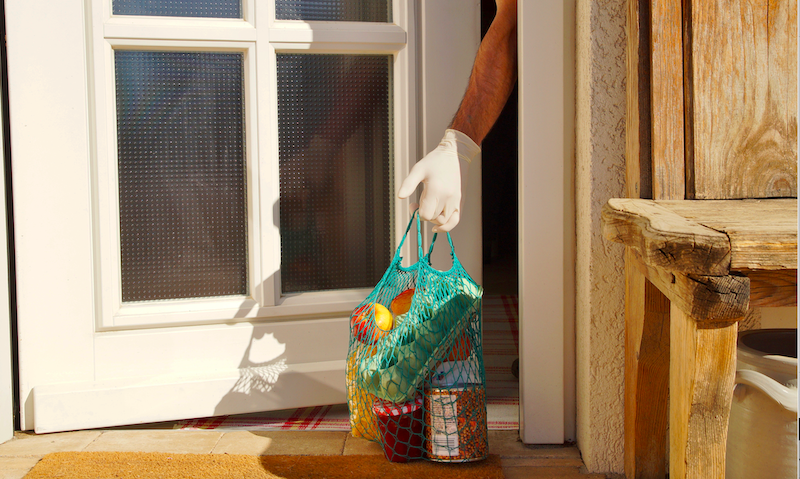How COVID-19 is changing the bread and butter of the food industry – and driving innovation
Grocery sales are putting restaurants back on the map as they collaborate with delivery services and suppliers to stay afloat and help local communities. This will inevitably affect the future of the food industry.
After the initial bursts of panic-buying, customers rushed to online supermarket services (many for the first time ever) to fill their pantries, only to be met with crashed websites and delivery bottlenecks. To ease this issue, and to help their communities, local businesses started selling groceries.
Inadvertently, this crisis has prompted significant changes in the food industry which are bound to propel grocery digitisation and change customer behaviours across the world. But first, businesses will have to see this through.
The storm before the bigger storm
The world’s come a long way since the coronavirus pandemic triggered lockdowns. Supermarkets imposed two-item maximum limits and shelves were stripped bare. The scene seemed straight out of a movie.
Online, the situation wasn’t looking any brighter. Supermarket websites were down, and alternatives like Ocado and Amazon were unavailable.
On the streets, tens of thousands of pubs, cafés, bars and restaurants closed their doors –and as a result, food delivery companies such as Uber Eats and Just Eat were hit with crushing demand.
Before these problems took form, the idea that millions of people across the globe would be at home seemed like the perfect opportunity for the online food delivery market to prosper, but the shift in consumer needs showed grocery delivery was now the priority.
For small businesses and players with heavy reliance on their brick-and-mortar shops and minimal online presence and delivery channels, the situation proved even scarier.
Desperate times call for creative measures
According to Uber Eats, the number of grocery and convenience stores signing up to its app in March was double the usual monthly sign-up rate. In Europe, their customer orders for grocery and convenience shop goods increased 59%. The delivery platform took advantage of this and partnered with supermarkets and corner shops in cities across Europe, including more than 700 in the UK.
Many restaurants and cafes, however, are also finding new ways to make use of excess space and keep themselves in business by setting up in-house grocery shops.
In London, the restaurant formerly known as Top Cuvee is now being called Shop Cuvee and is selling and delivering produce from top London restaurant suppliers. But it’s also selling eco-friendly toiletries. Italian restaurant Il Pagliaccio became a deli during lockdown, selling cured meats, cheeses, pastas and wine, as well as cupboard ingredients sourced from Italy. Brunswick East transformed one of its branches into a shop that sells daily bread and groceries.
There are dozens more examples like these, all stocked up with cooking ingredients and many selling hygiene and cleaning products.
For consumers, this restaurant-turned-grocery-shop trend is giving them alternatives while they’re avoiding conventional supermarkets and queuing at big online delivery websites.
Bringing communities together
Small, family-run restaurants are bringing communities together, and the ‘support local’ movement has drawn new customers and has helped them keep their employees – but there’s still competition and every business is scrambling for revenue.
And until this coronavirus pandemic slows down and food spaces can reopen, these spaces can make themselves known online. Deliveroo and Uber Eats have been lowering and waiving onboarding fees to bring more partners in and support struggling businesses; this could be great news in the long term, as customers discover and back smaller restaurants.
The icing on the cake is that the market is being educated on the benefits of online grocery shopping and delivery. This will likely mark a shift in consumer needs, as a high percentage of customers try these services for the first time all over the world – and drive more business opportunities.
With a little help from Soldo
Besides finding creative opportunities to generate revenue, it’s important that affected businesses make cash flow management a clear priority. Even during an upcoming recovery period, restaurants will need to be wary of their spending.
Several online grocery delivery service use Soldo prepaid cards to pay for and manage expenses. Many give their drivers a Soldo card which they can use to pay for goods from shops after the customer orders, before delivering them. Driver can also use Soldo prepaid cards for petrol to make sure they can get to where they need to be.
Handing out a preloaded card that doesn’t require the driver’s name to be attached to it has its perks outside of a global health crisis – but during one, when a business is adapting and drivers come and go, it can be particularly useful.
Expenses made on Soldo cards can be tracked in real time, as the cards are managed centrally by administrators from wherever they are. Our intuitive web console allows managers to top up the cards instantly as needed, and to set budget restrictions to control spending. Handing out a preloaded card that doesn’t require the driver’s name to be attached to it has its perks outside of a global health crisis – but during one, when a business is adapting and drivers come and go, it can be particularly useful.
It’s exactly the kind of safe, quick and practical technological aid that businesses need to take the reins of their finances in such an uncertain time – and to keep a tight grip on them after, too. Expenses made on Soldo cards can be tracked in real time, as the cards are managed centrally by administrators from wherever they are. Our intuitive web console allows managers to top up the cards instantly as needed, and to set budget restrictions to control spending. Handing out a preloaded card that doesn’t require the driver’s name to be attached to it has its perks outside of a global health crisis – but during one, when a business is adapting and drivers come and go, it can be particularly useful.
Planning for better days
The coronavirus pandemic has driven food businesses, delivery services and suppliers to come together in putting customer needs first.
The looming shadow of an economic recession has kept them on their toes, pushing them towards tough decisions to withstand the storm without going under. Some businesses will fare better than others, depending on the decisions their leaders make to outsmart competitors, and the actions they take to manage razor-thin margins.
Consumers won’t be rushing to crowded public spaces any time soon; in-restaurant dining won’t be enough for smaller businesses to succeed in the coming months, but being smarter, more creative and wiser with money might prepare them for any future.
Get in touch to find out how Soldo can be used in your food or grocery delivery business.








